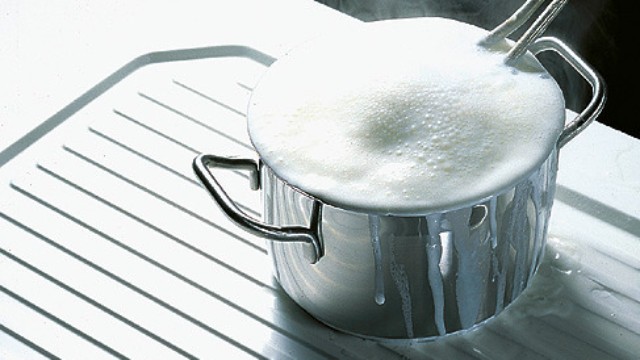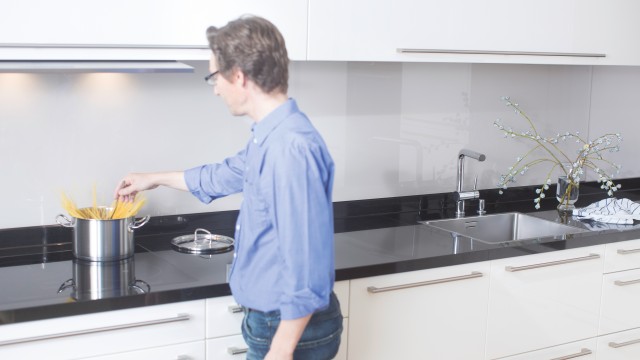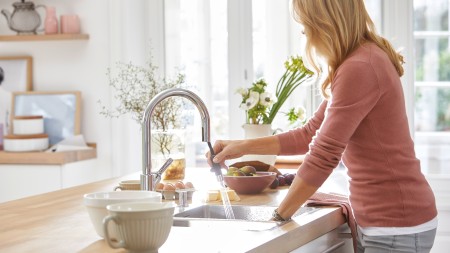Oh no, it happend again.
It only takes a few seconds of distraction, and then it happens: your saucepan suddenly boils over. The cooking water flows over the cooker top in a flash, often leaving unsightly marks.
Unlike milk or water used to cook pasta, rice or potatoes, pure water – for tea, for instance – never boils over. So why does this often happen with pasta water or milk? The explanation is really quite simple. What’s more, there are even some tricks that you can use to avoid having to scrub your cooker top yet again.


